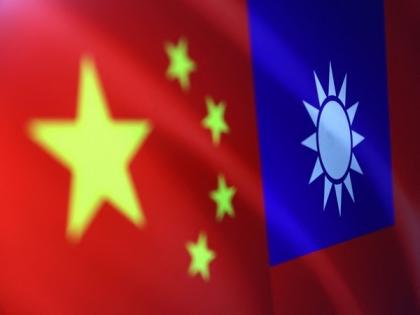Taiwan urged to 'depoliticise' growing threat of Chinese espionage
By ANI | Updated: April 26, 2025 12:27 IST2025-04-26T12:24:42+5:302025-04-26T12:27:17+5:30
Taipei [Taiwan], April 26 : With the surge in Chinese espionage, Taiwan needs to address the issue by "depoliticising" ...

Taiwan urged to 'depoliticise' growing threat of Chinese espionage
Taipei [Taiwan], April 26 : With the surge in Chinese espionage, Taiwan needs to address the issue by "depoliticising" it and acknowledging that anyone could potentially act as a spy for China, according to a US analyst, as reported by Focus Taiwan.
According to Focus Taiwan, Peter Mattis, a former counterintelligence analyst at the Central Intelligence Agency (CIA), stated during a seminar organised by the Global Taiwan Institute in Washington, DC, that it is important to "understand that anyone can become a victim. Anyone can make that decision, regardless of their background."
Peter Mattis, a former CIA counterintelligence analyst, noted that individuals from both the Kuomintang and national security agencies, as well as those affiliated with the Democratic Progressive Party, have chosen to spy for various reasons, as cited by Focus Taiwan.
He referenced a recent espionage case involving a former assistant to National Security Council Secretary-General Joseph Wu, who served as Taiwan's Foreign Minister from 2018 to 2024.
Mattis described it as tragic that an aide to Wu, or someone with longstanding experience in the Legislative Yuan, was found spying for the Chinese Communist Party (CCP), as cited by Focus Taiwan.
Quoting Deng Xiaoping's well-known "black cat, white cat" saying, Mattis remarked that whether it's a "blue, green, or white" spy, their political affiliation is irrelevantas long as their actions harm Taiwan, they serve the interests of the CCP.
He emphasised the need for Taiwan to manage the issue with caution and to develop clear, objective behavioural standards and security protocols. These would establish transparent expectations for acceptable conduct and the procedures for removing individuals from sensitive roles, Focus Taiwan reported.
Beyond espionage, Mattis expressed alarm over recent Chinese military exercises held in Inner Mongolia, which reportedly replicated the environment around Taiwan's Presidential Office in Taipei.
He pointed out the CCP's continued focus on Taiwan's military police and the security of its president, describing this as especially troubling due to the strategic importance of national leadership. According to Mattis, the drills indicate a deliberate attempt to gain real-time insight into the president's protective detail, as cited by Focus Taiwan.
The comments were made during a two-hour seminar titled "Enhancing US-Taiwan Cooperation in Countering the CCP's Ideological Work and Political Warfare," which also featured speakers such as Mike Studeman, former Commander of the Office of Naval Intelligence and retired rear admiral, and Derek Grossman, a senior defence analyst at RAND.
Disclaimer: This post has been auto-published from an agency feed without any modifications to the text and has not been reviewed by an editor
Open in app